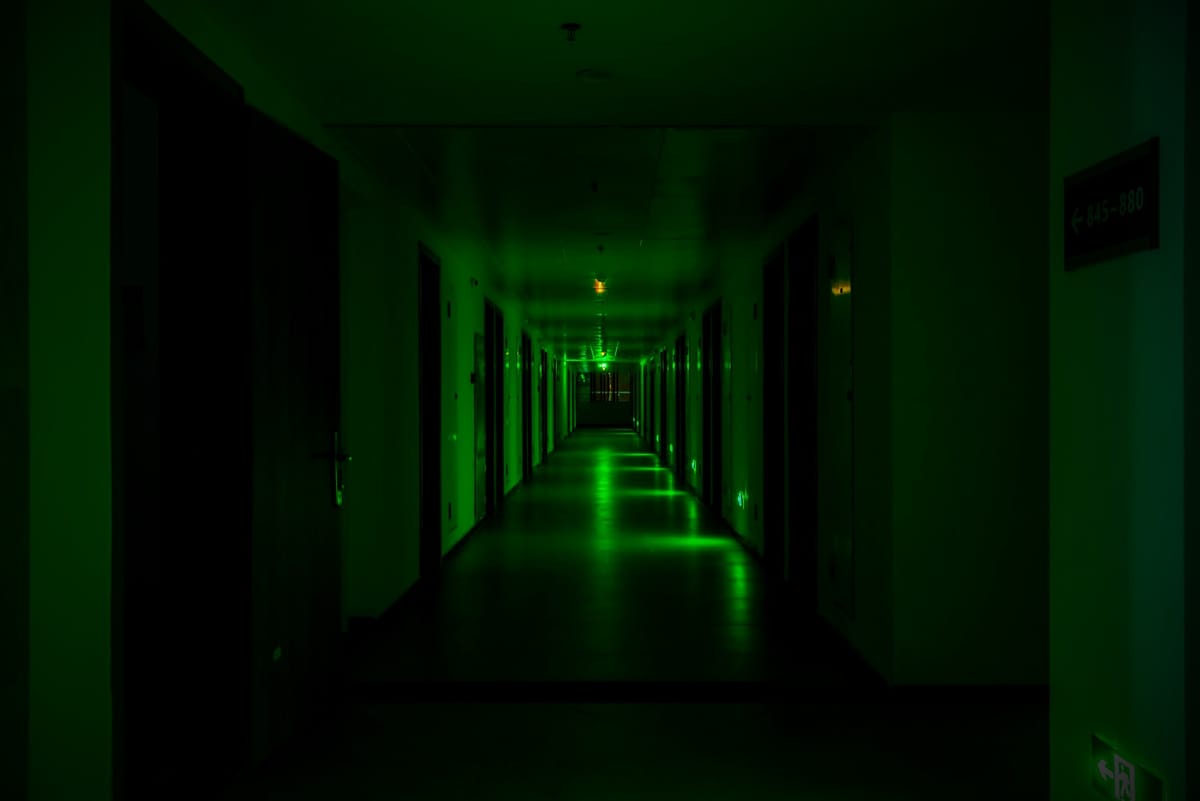Our Presence is Optional
This morning, a video call dropped mid-sentence again—gone, just like that.
One moment, I was speaking into the tidy grid of faces; the next, I was staring at my own reflection in a black square. The silence was immediate, like the world had quietly continued elsewhere.
The laptop sat open on my desk, still carrying traces of its last owner, and it would likely outlive me in this role. When the connection returned, no one had noticed my absence. Conversation had flowed around the gap where I had been, unbroken. Typical.
It struck me how easily a presence can be removed without leaving a mark—how something can feel essential one moment and be forgotten the next.
That thought stayed with me after the meeting ended, the cursor blinking on an empty document. I found myself returning to the list I began yesterday—things I believed to be mine until they weren't. I keep adding to it between tasks, before I forget what they looked like today.
Things you think are yours until they're not:
- The table by the window at your favorite café—empty only when you don't have time to sit.
- A sun-warmed patch on the sofa that belongs to you—until the cat finds it first.
- The evening hours after work—gone before you notice them leaving.
- A friend's promise to call back, that you keep checking for.
- The right to vote, until those in power redraw the map.
- A street at night, yours until someone decides you don't belong there.
- The second spoon from the drawer—already gone before I noticed.
- A passport, its cover and edges worn from travel, which feels like proof of belonging until a border guard decides otherwise.
- Your usual parking spot, reliably empty—until it isn't.
- Access to healthcare that feels secure until you lose your job.
- The right to speak freely, until the wrong person hears you.
I write each item quickly, the pen scratching against paper. By the time I finish one, another surfaces. This morning, it was the meeting itself—still running somewhere without me, as if my presence had been optional all along.
I imagine the black square in the grid where my face had been, waiting only a moment before closing in around the gap.
The meeting went on without me. That empty square stared back. Beauvoir knew something about this: how much of what we think is ours is just borrowed. The café table. The passport. Our livelihood. All of it.
Stories we tell ourselves to feel less temporary.
What Sartre might call our particular form of self-deception.
All I've ever known has been a series of temporary privileges.
And even those have always been conditional.
I am learning to accept how little is truly mine. The laptop will outlive this job. The meeting flows around the void. The list grows longer each day—not because I'm losing things, but because I'm finally seeing what was always there.
The morning light was never mine. But the decision to notice it, when I can, while I can, still is.
The laptop hums on, like the rest of the world, indifferent to my presence or absence. None of us chose this, but here we are, choosing anyway. Camus would understand. Or maybe not. I'm still unsure if I should even bother.
Tomorrow morning, another call. My face will be back in its assigned square again. But I carry this morning's silence with me—the black square where my presence used to be.
And I'm not sure what to call that.
— Dean Bowman
Tuesday, 12 August 2025



